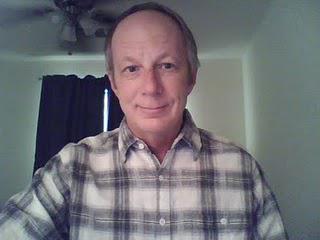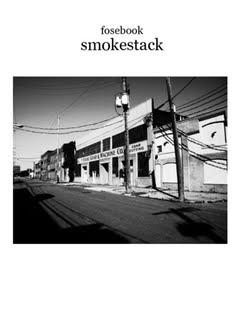My guest is A’Keith Walters…. Poet.

In my secondary school days, we learned poetry and most times I struggled to follow the sonnets, and the very many different types of poetry that my teacher felt I needed to learn. Being a natural rebel each time I got an assignment I wrote in my own words what I felt or sensed. I held poets in awe and still do today. The ability to reduce to the basics the myriad of emotions, vices and virtues into simple but powerful words.
Akeith Walters is one such poet that has me wondering why on earth he has called me a friend. I have wondered how I came to be his friend but the sense of wonder is also enhanced by my respect for his craft for in today’s world, a poet is a rare find indeed and a good poet is an absolute treasure. Since I said this blog is meant for literary pursuits, I wanted to bring in on Center stage someone who has added color and depth to my litetrary pretensions.
Akeith is not an aspiring poet but has had his poems published in an anthology Smokestacks, as well as five other anthologies including Fosebooks. Keith gave me an autographed copy and it has been thumbed through over and over again. His other poems have been in print in some lit magazines as well as online.

1.Please tell us a bit about you and your genre of writing.
I’m an urbanized Texan who has an obsession about writing, especially writing poetry. Well, at least my kind of poetry, which I call free verse. Little tidbits or literary snapshots with atmosphere. I was born and have spent most of my 55 years in Houston, Texas and have only recently in the past 4 years begun to write seriously. I dabbled in composing poetry when I was at the university years ago, but life and its many paths carried me in a direction away from the opportunities of writing. My hectic pace in the past has slowed down to a stroll now and I seem to have more time to indulge myself with this great and wonderful art form.
2. Like fiction I understand that poetry has many categories, please share the many categories you know.
Poetry, just like any form of fiction, has so many categories. I am familiar with only a few of them, such as narrative and epic, and balladic. Personally, I am not fond of categorizing art forms. I think to do so limits a reader’s response to it.
3. Do you think the Gregorian chants of the middle ages can be classified as poetry?
Yes. Poetry originated as a spoken method of passing records of events (history) from one generation to another, long before written language was developed and employed. Religious chants or any spoken poetry, was a device used to more easily remember and deliver information.
4. Share with us how you write poetry, is there a particular pattern?
As I’ve indicated, I prefer to write free verse. I like what Denise Levertov postulated in one of her books that a poem grows on the page, that it is organic and forms itself as the poet writes it. I prefer a poem that uses as few words as possible and one that can be contained on a single page. I like the challenge of starting with a blank page and writing spontaneously, discovering along the way what emerges from the effort. Sometimes it works and of course, sometimes it does not. But I find it to be an invigorating experience.
Once I have something I think can work, then I began a process of refining, whether it is rewording or cropping words from the over all effort, or simply making complete changes to the images being used. I like the finished piece to have a beginning, middle, and end. Brevity is also important to me.
5. Poetry has been described as human drama in a short form, do you agree?
Yes, I do. Poetry, like any art form, any good piece of art, reflects the sensual world around us. It connects us together on many levels. Human drama is to me nothing more than the interaction of people with each other, either directly or indirectly.
6. Fiction and Creative writers are generally lionized, feted and admired but not so with poets, do you have an idea why?
Mainly, as with most things in the world, it is a matter of economics. The general population loves to be entertained and absorbed in escapism, whether that is through story telling such as novels and movies or through something as simple as news and gossip. The work of Fiction and Creative writers make for an easier escape from life’s trials and tribulations, so people will invest more time and money in such things. Poetry, because of its layered meanings and its brief presentation or duration of experience, tends to offer less escapism. It is like a great sweet apple. Once it is eaten, its good and new tasty experience, regardless how enjoyable, is over. Where as in comparison, a good movie or book, like a grand meal with many courses, lasts a long time.
7. Who are your favorite poets?
I like the style and writings of Denise Levertov, especially considering her background and the times in which she wrote. There is a gentleman that I have recently met, Lynn Stokes, who is a “Cowboy Poet”. I like his narrative, rhyming style. He has been composing poetry privately for his wife for decades and has only recently been published (on a CD). He has a great reading voice and can be very entertaining, despite his old school approach to structured poetry.
I must confess that one of my favorite poets is Vassar Miller. She was a native Houstonian and I was first exposed to her when I came across a self-published pamphlet of hers thirty five years ago on a bench outside the University library. Her style was to me unique and ahead of its time. Brief and very attuned to the senses of the reader. Brilliant, I think. She went on to become the Poet Laureate Of Texas in the mid-eighties. On a personal level, she had to overcome the handicaps of cerebral palsy which greatly influenced her creativity.
8. Has there been a poem that has had a very profound effect on you?
I love Vassar Miller’s Faux Pas. It is so brief, yet packed with so much. In writing about death, she writes about life, about friendship, about common threads that individuals share and have in common with each other. Brilliant, for sure. I find new layers each time I read it.
9. Rap music is sometimes regarded as protest poetry of the young against the establishment, can poetry be used as an activist tool?
It can but then poetry of this day and age has such a limited audience that I do not think it can be an effective tool. I mean, during the Victorian age (late 19th century), poets were treated like today’s rock/pop stars. Such an influence now I think can be found with rap, rock, and pop singers/songwriters and not so much at all with poets.
10. What advice will you give an aspiring poet?
As other poets have said to me, write, practice, write, and practice some more, and above all else, keep reading good contemporary poets (and writers).
11. Can a book of poetry become a bestseller and fetch comfortable living for a poet?
It can, but I doubt it. I mean, there is just not the audience to support the sales of strictly poetic writing. More likely, a writer can support himself with his poetry if sold in conjunction with other, popular writing or other creative artistic endeavors. But that is like selling a sofa and having a throw pillow included as an additional touch.
12.Do poets also suffer from writer’s block, and what can you do in such a circumstance?
Poets can definitely have writer’s block, at least I can. What I do, and what has worked so far for me, is to set writing aside awhile and to read some really good poetry. I like to discover new writers and explore their talent.
Thank you for coming on Center Stage.
If you do want more of this poet please visit his blog http//grayayes.blogspot.com
